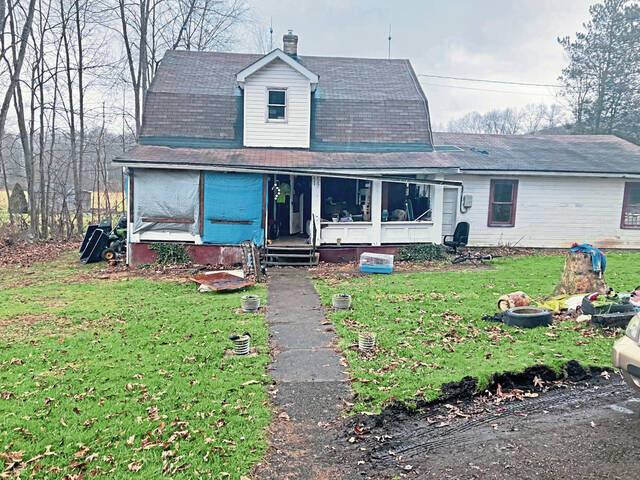Nearly 90 Republican congressmen are asking U.S. Health and Human Services Inspector General Christi Grimm to conduct an audit into the University of Pittsburgh’s fetal tissue research that some legislators allege included illegal and unethical activities.
In a May 24 letter, the Republicans address why they believe Pitt’s research, published in 2020, could have “violated federal law.”
The letter raises two primary questions: First, it asks whether Pitt, its recipients or subrecipients of HHS funding altered abortion procedures to obtain fetal tissue. Second, it asks whether fetal tissue used for research came from fetuses who were “born alive and then killed by organ or tissue harvesting.”
“We thus await your unbiased evaluation of the serious concerns we have raised, which may either obviate or confirm the need for additional congressional oversight,” part of the letter reads.
Pitt regularly receives funding from the National Institutes of Health, which is part of HHS.
Four out of nine Republican representatives from Pennsylvania signed the letter: Reps. Mike Kelly, John Joyce, Guy Reschenthaler and Glenn Thompson.
Other prominent Republican signatures include Texas Sen. Ted Cruz, Arkansas Sen. Tom Cotton, Colorado Rep. Lauren Boebert and Texas Rep. Dan Crenshaw.
Pitt did not comment on the letter. In December, an independent law firm assessed Pitt’s research and found it was “fully compliant with applicable laws,” though some claim the firm’s review was incomplete.
The May letter raises concerns that the third-party assessment “stopped short” of investigating UPMC, which was Pitt’s source for fetal tissue.
In its assessment, the firm said it did not review UPMC employees’ clinical decision-making or delivery of medical care because UPMC is a private, nonprofit corporation that is legally separate from Pitt.
“Pitt has no role in managing or supervising the provision of medical services by UPMC personnel,” part of the assessment reads. “We did, however, evaluate whether Pitt satisfied its independent duty to confirm compliance of specified activities related to fetal tissue undertaken by UPMC.”
The lawmakers’ letter suggests the firm “sidestepped the two key questions” by excluding UPMC from its assessment.
Republicans listed 10 questions they want Grimm’s office to answer. A spokesperson confirmed that the office received the letter and is reviewing it for appropriate action.
The debate over Pitt’s research could have a direct impact on the university. Some state Republicans are reconsidering their support for Pitt’s nonpreferred appropriation bill that the university annually uses to provide tuition discounts for in-state students.
Instead, these Republicans support a college voucher program, which would redirect funds from Pitt, Penn State and Temple University to in-state students at all universities, private colleges, community colleges and technical schools in Pennsylvania.
Hempfield Rep. Eric Nelson, who introduced the voucher program, believes Republicans could have the votes to redirect funding from Pitt to the Pennsylvania Higher Education Assistance Agency as early as this year. PHEAA would then give the money to in-state Pitt students, he said.
Pitt is pushing back against this funding threat with a campaign that has included written support from community leaders, student advocacy in Harrisburg and bipartisan endorsement from Pitt’s College Republicans and College Democrats.
Pitt’s appropriation bill, which is passed in the state budget, requires support from two-thirds of the General Assembly. The Legislature must adopt the 2022-23 state budget by June 30.








